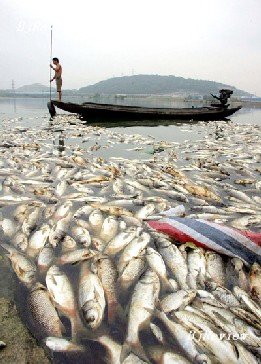|
Looking back in history, the rise of every world power has been different and in some way influenced the world order. Seeing China's swelling national strength and rising influence in world affairs, the Chinese people have begun to think more about China's rise after drawing lessons from history and the roles played by their foreign counterparts. Zhuang Liwei, a scholar from the Southeast Asia Research Institute, Jinan University in Guangdong Province, discusses this issue of common concern in an article published in Southern Weekly, a Guangzhou-based publication.

Rising in peace is China's fundamental commitment to the world, an indispensable part of its current diplomatic strategy-to play a responsible role on the world stage. If we are to give a summarization of China's development goals, it would be an evolution of civilization.
A great civilization can exert its strong influence on the comprehensive development of modern society with material, spiritual and political contributions to the progress of the entire human race. Also, it should be well aware of the ethics of duty for big nations to carry more responsibility in optimizing the global interest and resource distribution structure, avoiding zero-sum conflicts and pursuing mutual benefits. In most cases, a world-class power is always an innovator and the one that puts the spirit of the times into practice. By the end of the 16th century, the United Kingdom had a big say in world affairs after it became the major global power. Most of us may attribute this to its naval might, but looking deeper, its decisive role in the establishment of modern economic systems, such as the market economy, wealth distribution and interest equilibrium, as well as the realization of a science and technology revolution, basically assured its rise as a global superpower.
The rise of the United States in the mid-20th century was akin to that of the United Kingdom, which depends to a large extent on its active role in pushing the formation of a new international order and other facilitating institutions under the framework, such as the founding of the United Nations, support for non-colonization and the maintenance of a stable global economy through a set of rules. Moreover, headed by the United States, a Western camp enabled one super nation to affect other member states by its strong ideological power.
Evolution of civilization demands constant progress and harmonious development in social structure, people's living standards and national quality, and a well-protected ecological environment. Now the international community has invented a number of monitoring mechanisms, such as government cleanliness, human rights, human development and misery indices, to appraise the quality of a nation's development in terms of rising, stagnation or degeneration. Obviously, the specific indices will truly reflect the quality of rising and remind the nation leaders of the small defects that might undermine the development in the long term.
Today's rising concept indicates not just economic prosperity, but also includes advanced social systems, far-flung world perception and extensive cultural influence. At the current stage, China is a major economic power, generating strength from its supply of low-priced primary products and strong competitive edge in huge purchasing power, as opposed to the core competence of hi-tech research and development. Still we are lagging far behind other countries in human development, which is closely connected to the quality of life of its citizens. Yet, to China, the real rise is still a goal waiting to be realized.
We can see a China in an awesome rising; at the same time, we should be well alert to the quality and costs of such rising. At present, China is getting ahead by its prosperity in material civilization, but the rise in damage to the environment and resources is creating a huge dilemma for the Chinese people. Meanwhile, the growth of China's GDP is over dependent on foreign investment and budget expenditures, resulting in an extremely unbalanced economic structure. In addition, the underdeveloped market system, weak research and development capability, immature financial market, and inadequate experience in brand management and multinational business operation have weakened China's global influence. The increasingly widening income gap between different regions and social groups, urban and rural areas also risks the already fragile financial and social security systems.
Economic bubbles and development deficits can easily cause violent disturbances and even turmoil. There is no denying that China is troubled by a deteriorating environment, short supply of energy resources, and the lack of rules to readjust social interest and regulate social morality.
The extensive and energy-consuming growth mode worries both the Chinese leadership and international community. China is the biggest coal, iron and steel, and copper consumer, and the world's second largest electric power and oil user next to the United States. We are in largely short supply of water and land resources, and the living environment for Chinese people is severely challenged by quick degeneration. A low-quality, resource-consuming and environment-unfriendly development mode will interrupt, destabilize and even doom China's rise. It is reported that China is topping the world as the biggest sulfur dioxide polluter. As the soil erosion area extends, China's pollution not only becomes the headache for our own government, but also bothers neighbors who want payment for the damages caused by us. Will the international community welcome such a rising member?
|
